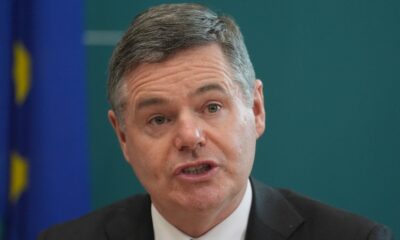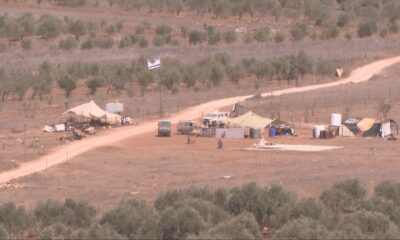Breaking News
Could Hurricane Gabrielle hit the UK this weekend?
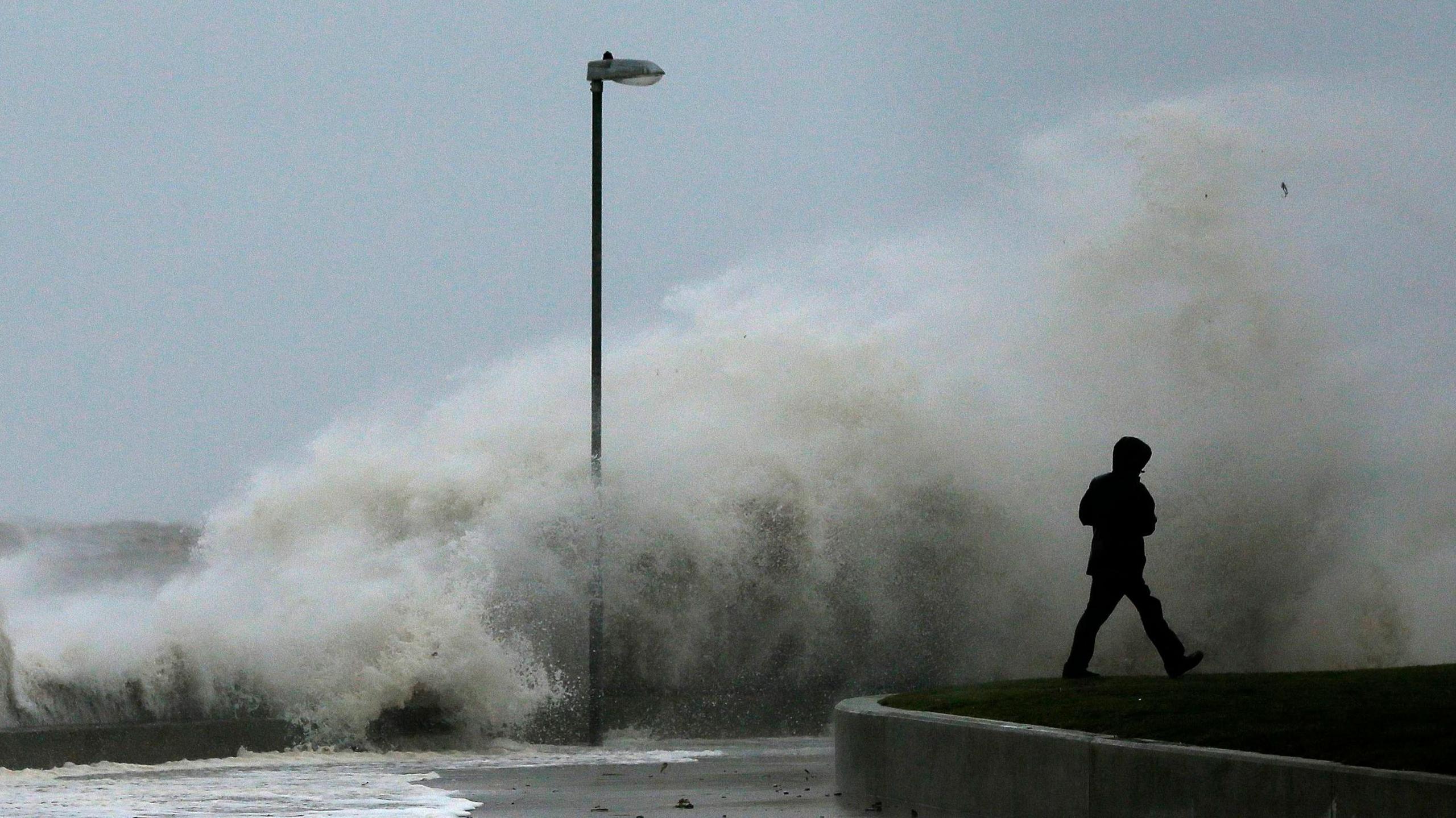
Read more on post.
-
23 September 2025
Hurricane Gabrielle is only the second major hurricane of the Atlantic hurricane season, forming less than a week ago in the mid tropical Atlantic.
It rapidly intensified near Bermuda but after a sharp turn to the right it is now heading back across the Atlantic towards the Azores.
Whilst Gabrielle will weaken as it travels over cooler waters, parts of western Europe are still likely to be hit by severe weather.
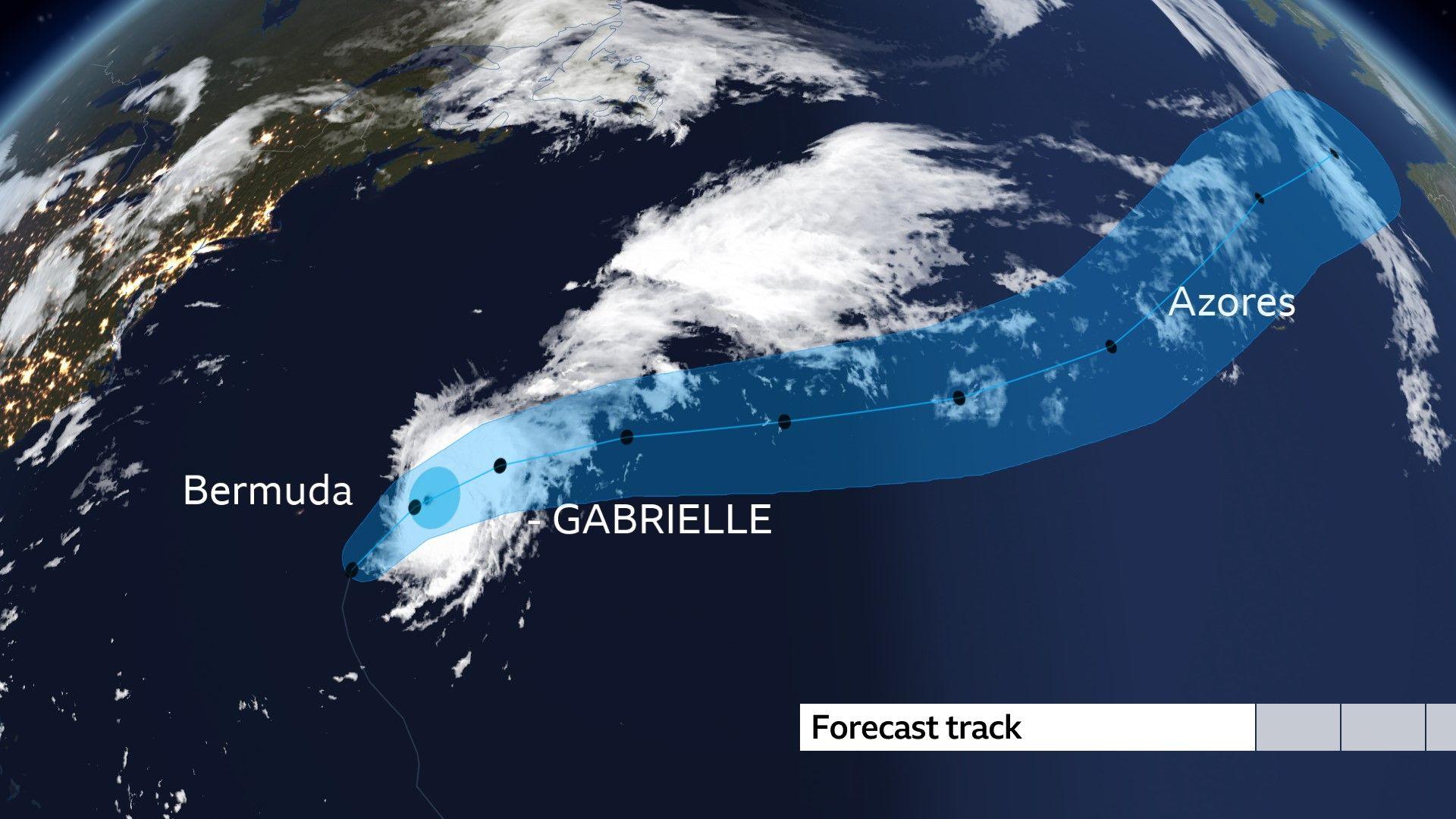 BBCWeather
BBCWeatherHurricane Gabrielle’s path
So far this season there have been more tropical storms and hurricanes in the east Pacific than the Atlantic basin. The Atlantic hurricane season has been quiet for multiple reasons but we are now in the peak period of hurricane activity.
Gabrielle strengthened on Monday to become a major hurricane near Bermuda. Early on Monday it was still a category 4 hurricane with sustained winds over 135mph (217km/h).
According to the National Hurricane Center the hurricane appears to have reached peak intensity. The eye of the hurricane is less distinct, probably as a result of vertical wind shear. Wind shear tends to weaken and ultimately rip hurricanes apart.
Gabrielle is forecast to be steered to the north of the sub-tropical ridge of high pressure then accelerate as it is picked up in a stronger westerly wind-flow.
Increasing shear and cooler water should cause Gabrielle to weaken faster.
However, Gabrielle is still expected to be a hurricane as it approaches the Azores later on Thursday. Biggest impacts here could come from large waves forecast to be 5-6m high.
From there the remnants of Hurricane Gabrielle will race on to mainland Europe.
Heavy rain on the way for Portugal
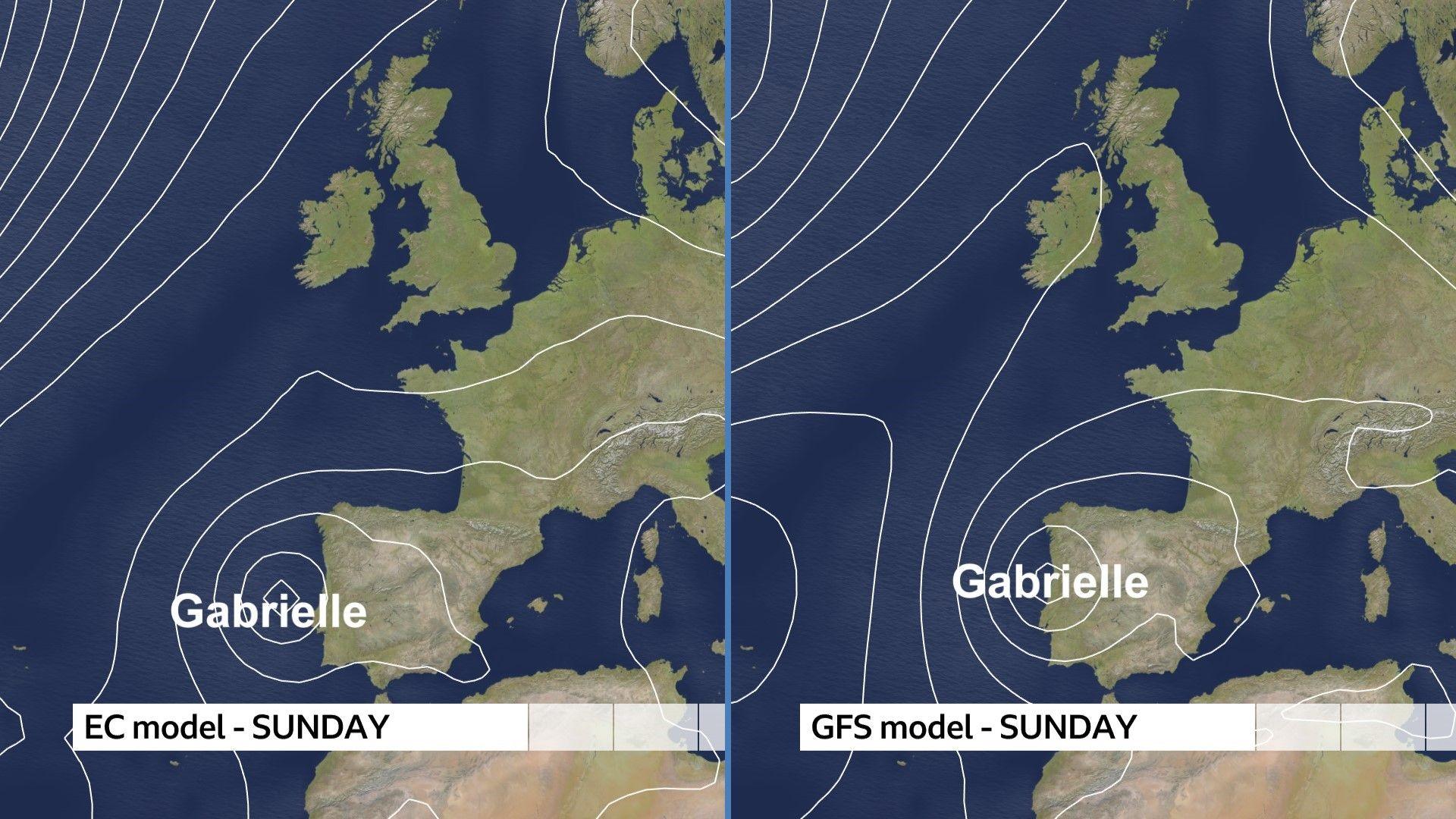 BBCWeather
BBCWeatherPredicting where a hurricane can hit five days or so ahead can be very difficult.
Hurricanes throw a huge amount of energy and heat into the atmosphere and when they head over the Atlantic they disrupt the jet stream pattern. This is something that historically all computer models have difficulty with which leads to a greater level of uncertainty.
Climate change could possibly add to the uncertainty with hurricanes expected to become more powerful, slow down and rapidly intensify more often.
Having said all that, the main computer models are now showing much more agreement.
Both the EC and GFS forecasts show an area of low pressure (the remains of Gabrielle) hitting Portugal on Sunday. A combination of large waves, strong winds and heavy rain is likely to bring some disruption here.
Will Gabrielle impact the UK?
It looks like we are going to be spared the wet and windy weather from Gabrielle.
An area of high pressure is keeping the UK dry this week and after some chilly nights it will become milder.
A band of rain will push in from the west on Friday night and Saturday but the rain will tend to die out on Sunday and many eastern parts of the UK look like staying dry.
Stay up to date with how long the dry weather will last and any changes to the forecast track of Gabrielle this weekend on the BBC weather app.
Breaking News
New laws needed to tackle Russian ‘shadow-fleet’ threat, says Department of Defence official
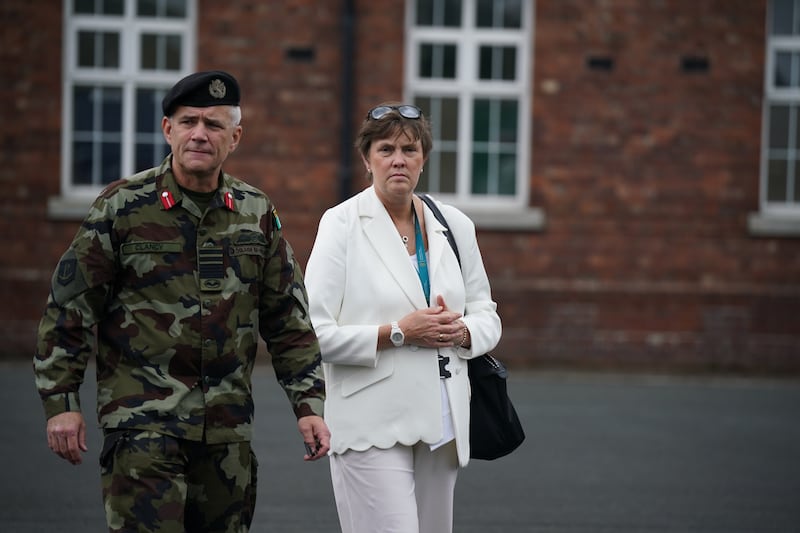
Read more on post .
The Government is to examine new legislation to address the growing number of Russian “shadow-fleet” vessels passing through Irish-controlled waters.
Department of Defence secretary general Jacqui McCrum said the move was one of a number of measures being taken by her department to counter potential hybrid threats to Irish underwater infrastructure such as gas pipelines and communications cables.
Ms McCrum made the comments at an event held by the Institute of International and European Affairs (IIEA), the Dublin-based think tank, examining risks to subsurface infrastructure.
Simon Coveney, the event’s chair and former tánaiste and minister for defence, said 75 per cent of transatlantic cables “come through or very close to” Irish-controlled waters.
More than 80 per cent of gas used in Ireland comes through underwater pipes from Scotland, while there were plans to build enough offshore infrastructure to generate 37 gigawatts of electricity by 2050, he said.
“So this economy, this island and our people, are extremely vulnerable to potential threats to that core infrastructure that surrounds our own,” Mr Coveney said.
Ms McCrum said the “increasingly volatile geopolitical situation” highlighted the vulnerabilities of Irish undersea infrastructure.
“Indeed, as you know, Russian intelligence vessels and vessels of the shadow fleet have been seen in our waters.”
Russia has been using vessels registered in other countries to transport oil in an effort to bypass sanctions imposed following its invasion of Ukraine. These vessels, which have also been accused of damaging undersea cables in EU waters, are known collectively as the shadow fleet.
In July, an Irish Times investigation found a large increase in the number of shadow fleet vessels transiting through Ireland’s Exclusive Economic Zone (EEZ), including some engaged in unusual behaviour such as taking economically inefficient routes or sailing well outside recognised shipping lanes.
Ms McCrum said that, along with the new Defence Forces Chief of Staff Lieut Gen Rossa Mulcahy, she is preparing advice for the attorney general to strengthen legislation in this area.
The current legislation was created “in a different time and the threats are completely different now,” she said.
International legislation is unclear as to what action states can take against falsely flagged vessels in their waters.
Vessels typically have a right of passage through countries’ EEZ. However, some experts argue this is not be valid if a ship is flying a fraudulent flag or failing to comply with safety or environmental requirements.
The secretary general said she is examining how the process of legislative reform can be accelerated and done “quickly and urgently”.
Former Defence Forces Chief of Staff Mark Mellett said Russia’s shadow fleet activity was part of its hybrid activity toolbox and that it operates “in the gaps” of international maritime law.
More needers to be done to tighten up regulations in this area, the retired vice-admiral said.
“It may be a requirement for international institutions to meet and be more robust in the context of how you deal with this,” he said.
Ms McCrum said her department has created a new maritime security unit to lead in this area and that a maritime security strategy is currently being drafted, having completed its public consultation phase.
Work is also ongoing on acquiring sonar technology to allow Naval Service vessels detect what is operating under the sea. She said the procurement process of this technology has been greatly accelerated.
“This capability will be used to detect objects near cables and pipelines in Irish territorial waters and the exclusive economic zone,” she said.
She said the Department was also examining the prospect of using unmanned vessels to monitor Irish waters.
Ms McCrum pointed to comments by the head of the UK Royal Navy that every ship going to sea will have two unmanned vessels on board.
“So we need to look at that,” she said.
Breaking News
No one-off measures in next year’s Budget – Donohoe
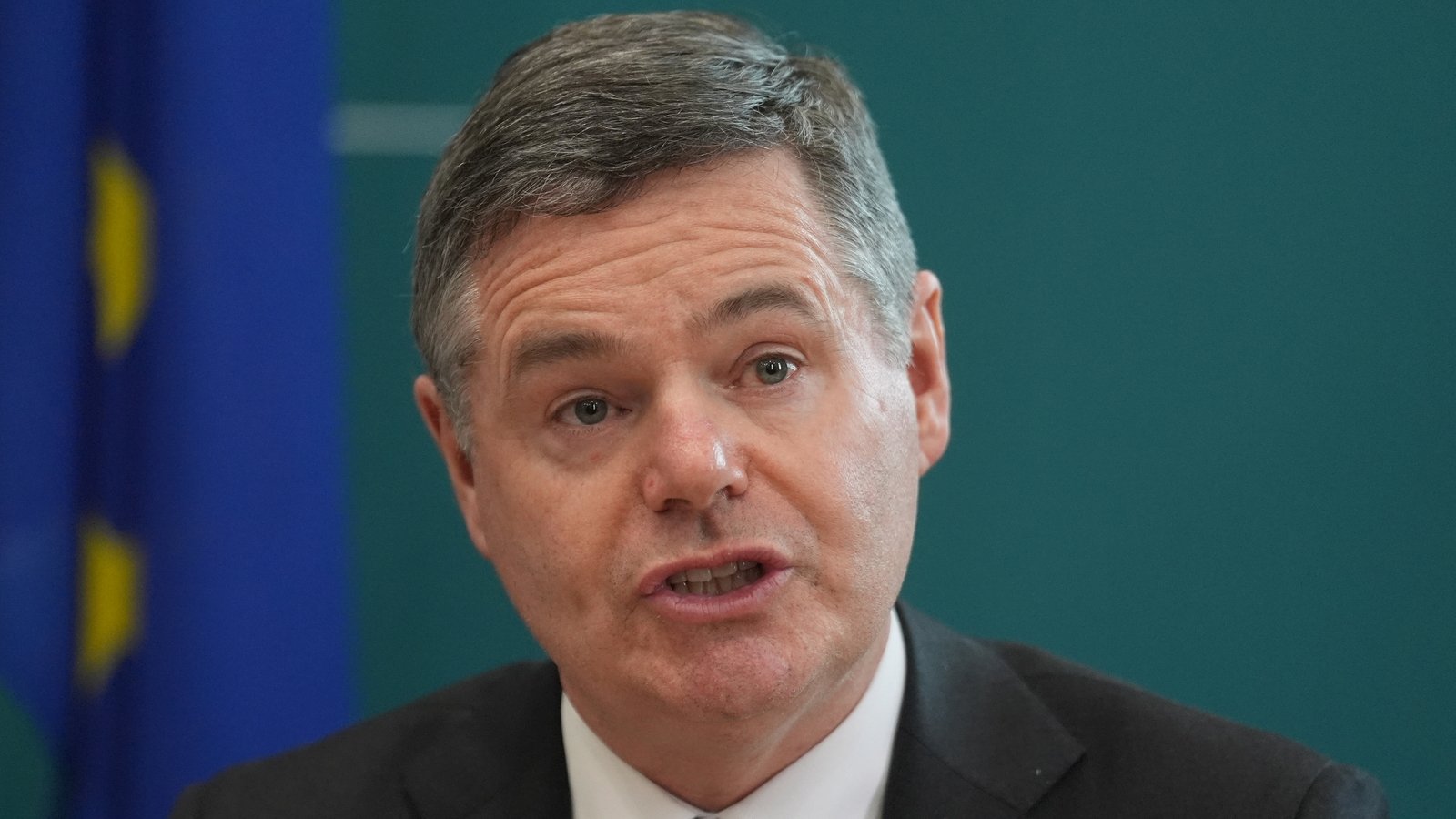
Read more on post.
The Minster for Finance has insisted there will be no repeat of last year’s once-off cost of living measures, but other permanent supports will be put in place in next month’s Budget.
Speaking at the Oireachtas Budgetary Oversight Committee, Paschal Donohoe said inflation has normalised, although the Government understands that prices have risen.
“Government is fully aware of the impact inflation has had on businesses and households throughout the country over recent years,” he said.
“Inflation has now returned to normal rates, but we are acutely conscious that price levels have risen in recent years, especially for necessities such as food. In this Budget, we will provide cost of living supports that are sustainable and permanent.”
Mr Donohoe told the Committee the economy is resilient, the public finances are in good shape and Modified Domestic Demand which measures activity in the domestic economy grew 4% in the first half of 2025.
However, he said it is not a time for complacency and the rate of growth of current spending has to be moderated. He also spoke the danger of over reliance on corporation tax receipts.
“Ireland must remain a top destination for multinational firms. These corporation tax revenues helped fund Government’s extraordinary response to the pandemic and the cost of living challenge,” he said.
“Nonetheless, I have warned on many occasions about the risks of overreliance on corporation tax. A highly concentrated tax base presents an inherent risk to sustainable public finances.
“Ten companies account for well over half of all corporate tax receipts. A negative shock to these companies would also negatively impact VAT and income tax revenues.”
Mr Donohoe said Budget 2026 is coming at a time of great uncertainty and the disruption of internationally settled trade rules will damage Ireland’s economic growth.
He said, however, the economy is fundamentally resilient.
Budget 2026 will be announced in the Dáil on 7 October by the Mr Donohoe and the Minister for Public Expenditure, Infrastructure, Public Services and Reform, Jack Chambers.
Breaking News
Energy regulator to investigate Energia for claiming price increases were sanctioned

Read more on post.
The energy regulator is to probe an electricity supplier for claiming upcoming hefty price increases were regulator-sanctioned and “unavoidable”.
The Commission for Regulation of Utilities (CRU) said it would investigate the claims by Energia to see if they were misleading or breached the customer code of conduct.
Energia’s price rise on October 9th will add on average €200 to an annual household bill, far more than the CRU has indicated it will require.
Energia’s explanation, published on the company website, was brought to the CRU’s attention by Social Democrats TD Jennifer Whitmore.
She told a CRU delegation at a meeting of the Oireachtas Committee on Climate, Environment and Energy on Wednesday she found the company’s tactic “offensive”.
She read from its explanation, which said: “While Energia has worked to minimise the impact on customers, these price changes are now unavoidable due to ongoing, substantial increases in electricity system operator and network charges.
“These regulatory-approved, non-energy charges, which are applied to electricity suppliers, are required to recover the costs of ensuring security of supply, addressing network constraints and investing in the electricity grid.”
The CRU, in its most recent price review, indicated it would sanction an increase of around just €16 annually in ‘non-energy charges’ to assist with grid improvements.
“I find that offensive, that they are actually trying to sell their price increases to customers by essentially blaming improvements in the grid and network security,” Ms Whitmore said.
Committee chair, Fine Gael TD Naoise O’Muirí, added his concerns.
“A company that you regulate is effectively blaming you for a much larger price increase that cannot be substantiated,” he told CRU chair Jim Gannon.
Mr Gannon undertook to raise the issue with Energia and question the rationale for the price increase.
Energia has been contacted for comment.
The company is one of several to announce price increases at a time when energy bill arrears are at what the CRU said were “historically high levels”.
Just under 300,000 households are in electricity arrears and more than 183,000 in gas arrears.
The regulator also updated the committee on the long-awaited decision on the future of new data centres, signalling a potential delay.
Restrictions on the connection of data centres to the electricity grid have effectively acted as a moratorium on new development since 2021.
They were introduced because of the enormous strain data centres were placing on the electricity supply, particularly in built-up areas.
A new policy setting out where and how data centres may set up was thought to be imminent.
However, the meeting heard there were over 80 submissions from interested parties to analyse.
“The anticipated publication date is therefore subject to fully addressing the complexity of the detailed submissions received,” Mr Gannon said.
-
Breaking News1 day ago
Barack Obama to be conferred with freedom of Dublin at ceremony on Thursday
-
Culture1 day ago
Taylor Swift’s new cinema outing generates more than €12million in just 24 hours
-
Travel & Lifestyle2 days ago
The Best Way to See Rome? On a Running Tour at Sunrise
-
Culture1 day ago
Milan Fashion Week 2025: Unmissable shows and Giorgio Armani in mind
-
Politics1 day ago
European Parliament snubs Orbán with vote to shield Italian MEP from Hungarian arrest
-
Business9 hours ago
Households to be offered energy bill changes, but unlikely to lead to savings
-
Opinion2 days ago
Saving the best for last: How the Making In symposium left an indelible mark
-
Culture2 days ago
Marvel stars Mark Ruffalo and Pedro Pascal stand up for Jimmy Kimmel as Disney boycott intensifies




